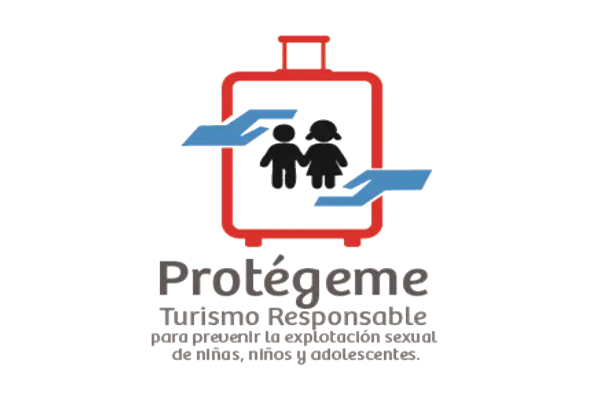ESNNA Code

What is the ESNNA Code?
The ESNNA Code refers to the set of regulations, principles, and actions designed to prevent and combat the Sexual Exploitation of Children and Adolescents (ESNNA).
It establishes the responsibilities of businesses, especially in sectors like tourism, transportation, hospitality, and entertainment, to create safe environments and protect minors from any form of sexual exploitation.
In Peru, companies operating in these industries are required to implement preventive measures, train their staff, adopt a Code of Conduct, and promote reporting mechanisms to ensure the rights and well-being of children and adolescents.
The ESNNA Code’s main purpose is to guarantee safe spaces and uphold the fundamental rights of minors, while promoting ethical, responsible, and sustainable practices across all activities.
"Adhering to the ESNNA code is not just a duty, but a commitment to protecting, conserving, and respecting our heritage and communities."
ESNNA Commitment
- Ongoing training: Train all staff regularly on the principles of ESNNA and the importance of child and community protection.
- Zero tolerance policy: Establish and communicate that any behavior violating the code will be penalized without exception.
- Background checks: Conduct background screenings for all personnel and partners who interact with minors or local communities.
- Supervision and monitoring: Continuously supervise activities to ensure protocols are followed.
- Promote a respectful environment: Foster a culture of respect and awareness towards local communities and visitors.
- Reporting procedures: Provide clear and secure channels for staff, visitors, or communities to report any inappropriate behavior.
- Respect for environment and culture: Encourage responsible tourism practices that respect local traditions, culture, and the environment.
- Clear communication: Inform and sensitize tourists and staff about the ESNNA code in all activities.
- Security measures: Implement protocols that protect minors and communities, such as banning unapproved photography.
- Periodic evaluations: Carry out internal audits and assessments to ensure compliance with the code.

